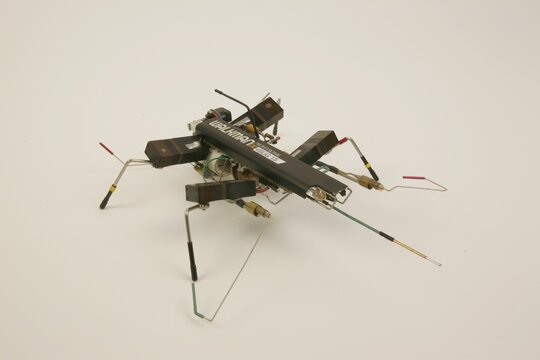It is an undeniable fact that I have a sensation that, if I wish, I can touch my nose and if I do not wish, I won't. You have the same sensation. Sensation is undeniable—it exists. It is probably an illusion.
In this statement, taken probably out of context, we can see whether or not we can pull apart the "sensation" from consciousness of the sensation ... to ask which confers the "computational advantage" - is it enough for there to be "something it is like" to have this "sensation"? If so, then bats and perhaps even ants would have enough of a sense of "I" (or at least "hIve") to gain this advantage? Or do we have to be more fully conscious of the sensation and its "owner" to get the advantage? The word "wish" ... "if I wish" seems to indicate some conscious awareness of it - if we turn our attention to it ... so perhaps even if our ancestors didn't turn their attention, fully, to it for quite some time, it was enough that it was there? I mean the advantage had to have been conferred long before we had debates on free will and thus long before we had the concepts (or terms) "free will" ... so now it seems to get more and more ephemeral as to what exactly does and does not have to be there to confer a computational advantage. And this isn't to say that other "sensations" we might some day be capable of having, wouldn't confer more of an advantage. So perhaps the kind of cognition that comes from meditating on "no-self" confers some further "computational advantage"? In which case, we have given birth to the very new field of:
Computational Buddhism!
Occultist science wants consciousness to be artificial....only due to the fact that they want to build an artificial model on natural DNA information to resource the atmospheric body for a new resource. They want the Sephiroth model to be in Earth's atmospheric transmitted relays as the UFO condition Creator as a model of separated channels.
As reviewed by the human lives being attacked, the occultist scientist believes in his own version of Christ/Satan/Alien as the Creator concept of consciousness.
Yet our life is reviewed by them as if it exists as data, whilst they never imply their own persons exist as data. Whilst living in a life form of healthy mind and body they experiment and attack ours.
This is how the occultist scientist has always existed as a self applied conscious choice, as if he is the Creator self in person, safe from all of his inventions/creations.....yet he never was.
We know that we are not a machine, we know that the transmitted channels that the machines use do not belong to natural life, and we are also aware that the use and transmitted signal experiments on our natural person is an attack. So does the occult scientist, yet they still apply the attacks.
The occult scientist is trying to convince us all that the UFO condition is natural, that the UFO and alien condition is our Creator and that machines created our organic natural life.
Yet our natural awareness and consciousness writes stories about the attacks and places machines as the over throw of natural life, the attackers of natural life and the destruction of natural life. We make movies to watch as natural atmospheric fed back awareness has been changed as a natural conscious state, and try to advise ourselves about our attack.
The scientist states that he can form algorithms and computerized calculations that interact with our life by a machine, implying as he lives in his natural life, without being attacked by the machine that he has proven that a machine created us.....yet not once does he consider his own status. He knows that he studied mind contact and mind control as phenomena, where only a small amount of human life was enabled to apply mind control, only due to the fact that it was unnatural and caused by phenomena. He then invented an applied computer relayed...transmitted satellite program to the human mind claiming he now owns consciousness...yet watches as life is attacked by the program.
He does not think about the fact that he cannot calculate the power that a Sun holds, for he lives in a colder state, a state of stone and atmospheric gases, yet still implies that he knows all powers. How can you know the power of a body where no life exists?
Consciousness......we know that we were always a spirit, that we came from a higher light origin and manifested. We know we live as a human being, procreate as a human being, and die as a human being. We also know that our spirit is owned personally by our own selves. We also know that animal consciousness is not ours, their bodies are separate to ours, and they also procreate their own species. If the sexual procreation stopped, all organic life would desist, so where is the Creator consciousness in the true review of human ownership?




